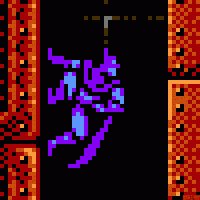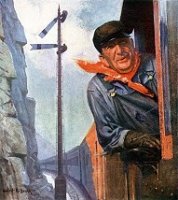The hammer of the gods will drive our ships to new lands.
Ten years ago, when every Euro game had a bored looking farmer on both the front and side of the box, the thought of a worker placement game about fearsome Vikings would have seemed an unlikely pairing. But here it is, we now have several options that allow you place bloodthirsty warriors instead of farmers. Raiders of the North Sea from Renegade Game Studios is another such game to do so. Its innovative take on worker placement and willingness to buck trends of modern Euro games not only sets it apart from games like A Feast For Odin and Champions of Midgard, but it might just come out ahead of those titles.
Unlike other worker placement games where each player has a pool of workers in their color, Raiders of the North Sea has players sharing workers of three different colors that are distributed on the board at the beginning of the game. Each player starts their turn with only one worker and has the option to either build or raid. If building, you'll take the action in the spot you placed and then select a different worker already on the board, pull it off and take that action as well. Raiding follows the same "place one, pick one up" concept, but each raiding space can only be collected from once during the game. After taking the goods in the space you're raiding, you'll collect the worker assigned to that space at the beginning of the game. The worker you used to raid with is essentially out of the game and the one you're taking is always able to perform more advanced actions than the basic ones you have access to at the beginning.
When it comes to player interaction, most worker placement games come across as passive at best, but Raiders of the North Sea is a much more reactive experience. Being able to pull a worker and taking that action might sound like nothing is ever off limits, but that's not the case. You'll often find that there is one action you'd rather take before the other, but since you have to place first, a blocked space still prevents you from doing that. The color of a worker matters, too. Some actions require a specific color or give a better payout. Sometimes you'll need to pull a certain worker just to to set up the action you want to do on your next turn. And of course, the color of the worker you place might give the other players what they need. Going on a raid and bringing back a new worker might open up the more advanced actions to you on your next turn, but you'll be placing that worker and leaving it for someone else to grab on theirs. It's such a fresh take on worker placement and the game is much more dynamic than what the genre usually has to offer.
There's an enjoyable rhythm to the game as you spend time preparing to go on raids, going off to plunder, and coming back to get ready for your next trip out. Building a band of Vikings, represented as a deck of cards, is as close as the game comes to engine building. Each Viking has a unique ability when added to your band, some give you more points for raiding specific locations, some might make it easier to prepare for your journey North. Your Vikings might die while on a raid and choosing which ones you're going to lose can be a difficult choice. Instead of hiring a Viking and adding it to your band, you can play it for a one time effect. The cardplay here can be pretty nasty, adding even more of a"take that" element than that found in Lords of Waterdeep. It's another welcome addition for players who like more interaction in their games.
Where the standard practice of so many current Euro games is to take several familiar systems, find ways to vaguely interlock them, then bury the path to good play beneath layers upon layers for players to puzzle through, Raiders of the North Sea takes a direct approach. Right from the beginning of the game, you know how to score points. You need money to hire Vikings, you need Vikings to go on raids, you need raids in order to score points. Any extra end game scoring is kept clean and to a minimum. The dynamic, reactive gameplay is kept center stage here without any needless layers to clutter it in an effort to lend the feeling of mastering it over multiple plays.
There's a feeling of repetition that starts to set in just as the game winds down, and the satisfaction of building towards something is replaced with moments to race towards, but that's not enough to hurt to overall experience. The core mechanic is so refreshing, utilized to great effect and given the proper amount of attention to really shine. Despite having a theme that has become all too common in recent years, Raiders of the North Sea is absolutely terrific and one of the most unique worker placement games the genre has seen in some time.
 Games
Games How to resolve AdBlock issue?
How to resolve AdBlock issue? 
























